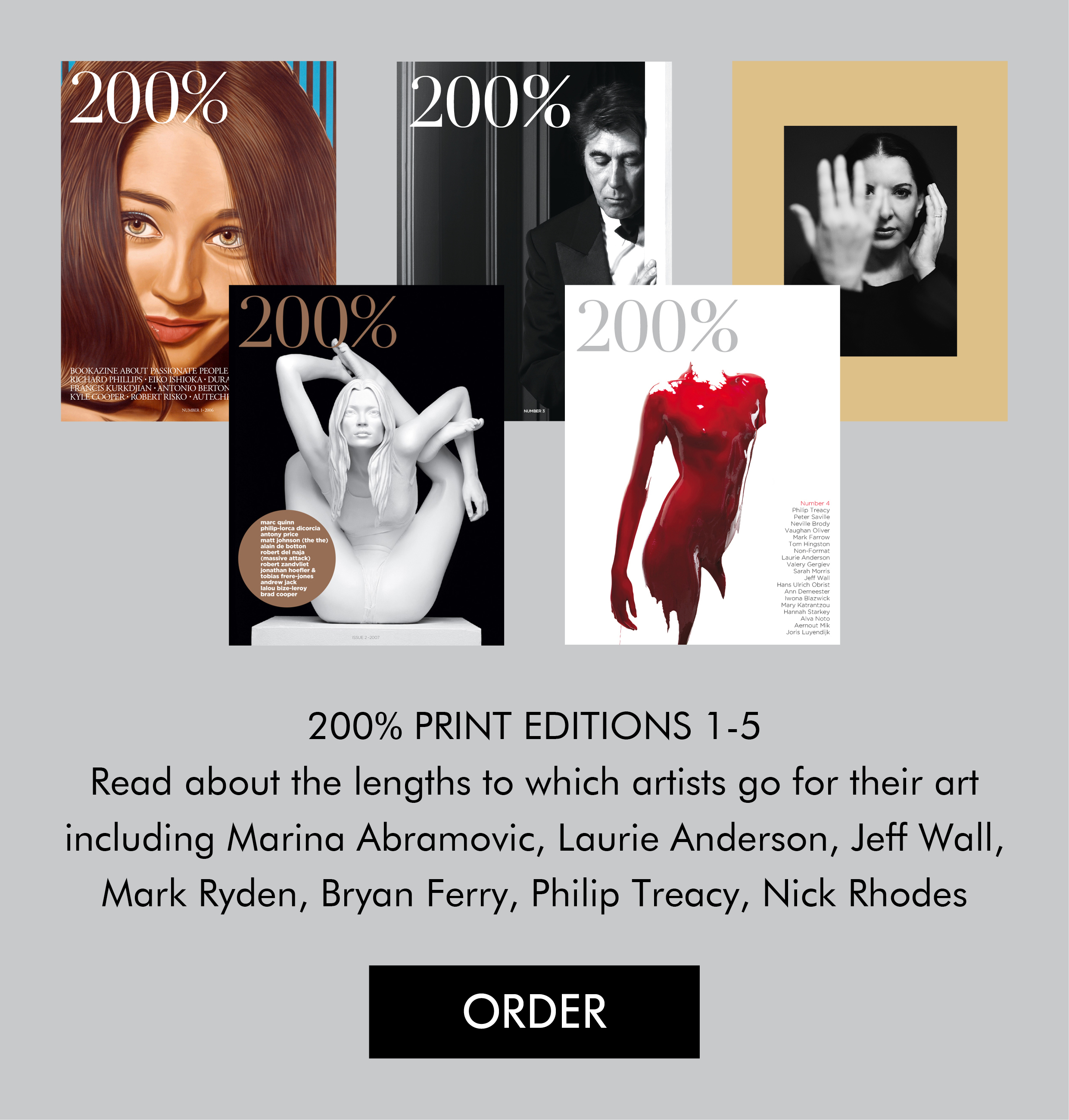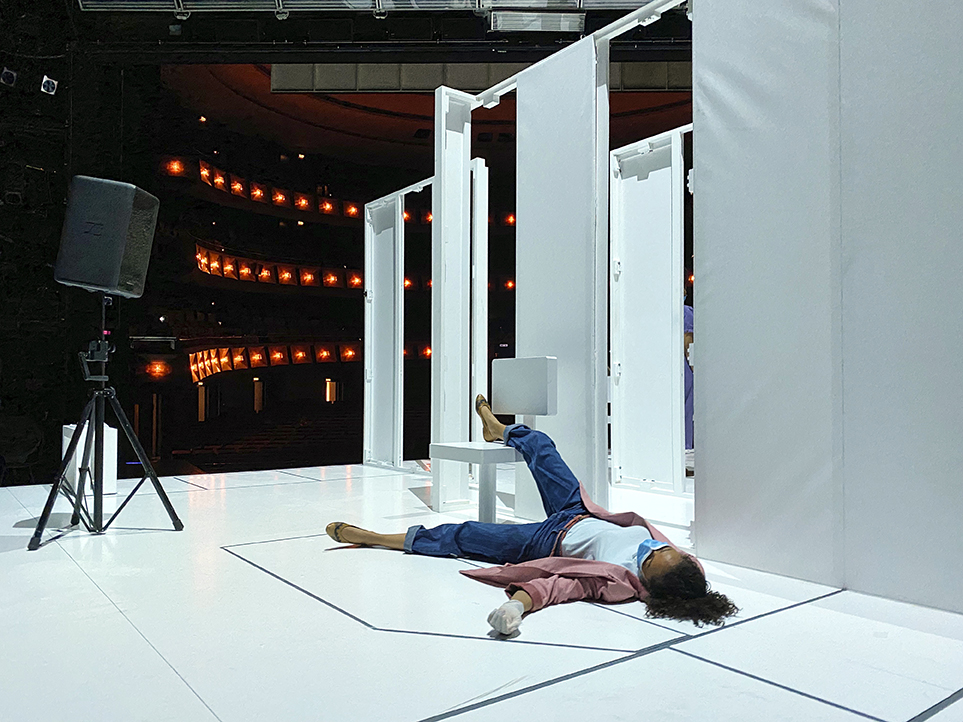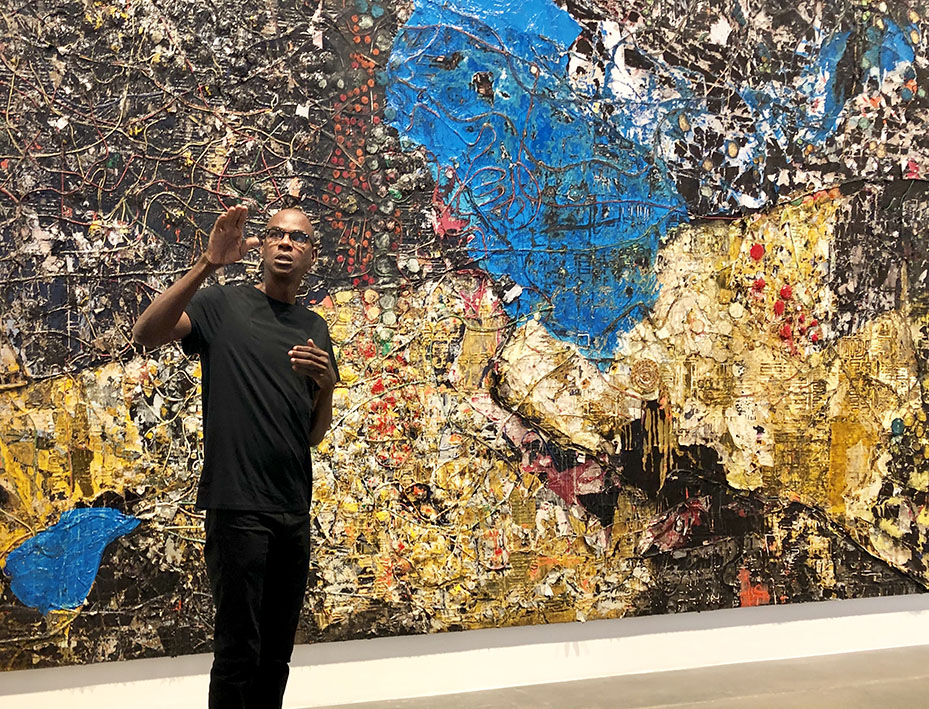 The set list of the Scritti Politti Bush Hall concert last month was an eclectic mix of songs. Their 1977 debut single, ‘Skank Bloc Bologna’, a radical post-punk song, was followed by their 1984 dance floor classics ‘Wood Beez’ and ‘Absolute’. Unlike other musicians who took a new road with their music, and got criticized, most notably Bob Dylan, the Scritti Politti fans have embraced the band’s new musical direction.
In the 1970s, ‘Skank Bloc Bologna’ was played by the English disc jockey John Peel alongside Gang of Four’s ‘Damaged Goods’ and Magazine’s ‘The Light Pours Out Of Me’, whilst in the 1980s, ‘Absolute’ was played on public radio alongside Chaka Khan ‘I Feel For You’ and The Pointer Sisters ‘Jump (For My Love)’.
‘Absolute’ featured on the album ‘Cupid & Psyche 85’ where Scritti Politti had transformed itself from a band operating in the margin to one of the mainstream. With the new musical direction, Green Gartside, the frontman and sole constant member of the band, became a ‘pop star’, with his songs occupying high positions in the Pop Charts. Was the transformation, though, from being a band with a small audience into a band with a big audience fulfilling?
In this interview Gartside discusses the motives of the band’s new direction and the up-side and down-side of the new course. Also we discussed whether we can expect another musical direction with the band’s new album, which will be released later this year.
As with Scritti Politti, there have been many bands who have made a radical musical transformation. The motivations as to why a band changes its course can be a consequence of a line-up change, a different producer or, most obvious, lack of success with the current musical course. For some bands the new course works extremely well as they moved from performing in under-lit, obscure venues to the limelight of a stadium playing to a large audience. The down-side of a new course is that it sometimes alienates a band’s small, but loyal, audience who sometimes start to heckle new band members or threw objects to them at gigs, and finally turn their back on the band as the audience accuses the band of ‘selling out’. Other times, inelegant exits of band members – diplomatically described in press releases as ‘due to creative differences’ – with juicy accusations are ventilated in the musical press.
The musical transformation that caused a lot of notoriety is the ‘Electric Dylan controversy’ when Bob Dylan moved away from folk music and stepped into rock territory. The singer-songwriter, known for his acoustic performances with the Spanish guitar and harmonica, started to perform with an electric band and was booed when he took the stage at the Newport Folk Festival.
Massive Attack, not unsuccessful as a trip-hop band with a mellow sound who scored a big hit with ‘Unfinished Sympathy’ changed its course with ‘Mezzanine’ – a dark album with electronics and screeching guitars. Robert del Naja, the driving force behind the new direction, explained that if the new direction become successful they would be free to do anything they wanted. Not all band members were happy with the new course and Massive Attack ‘lost’ Andrew Vowles who was more interested to further explore the trip-hop element of the band’s music.
Prior to becoming renowned for being pioneers of electronic music, with legendary albums, such as ‘The Man-Machine’ and ‘Computer World’, the first record of Kraftwerk was filled with Krautrock music.
Vice Versa was an electronic band from Sheffield who changed their name to ABC when Martin Fry joined the band, becoming their lead singer. With the help of producer Trevor Horn, they created a polished, glamorous disco sound that culminated in ‘The Lexicon of Love’ album, which reached #1 at the British Charts.
The line-up change of another Sheffield based band, Human League, became a commercial success following the addition of two attractive female singers, going on to score a multi million hit-single with ‘Don’t You Want Me Baby’. At that time the title must have sounded ironic to the Human League’s original members Ian Craig Marsh and Martyn Ware who left the band and later formed a not unsuccessful band called Heaven 17.
Underworld, who will perform at the Opening Ceremony of the London Olympics, started their career with a guitar dominated electro pop sound but, with the entrance of Darren Emerson, they created a mixture of techno, house, and drum and base sound, scoring a bit hit with ‘Born Slippy’, which featured prominently in the film ‘Trainspotting’, directed by Danny Boyle, who happens to be the director of the Opening Ceremony in London.
Some of the stories above, such as creative differences, or exit of founding band members, also apply to Scritti Politti’s transformation. Green Gartside even wrote screeds of justifications to convince the other band members that the new musical direction was the right thing to do. Does Gartside still have those screeds of justification and can he recall its content?
GG: I don’t have them anymore and I don’t know if any of the original members of the band have them either, as I haven’t seen them for 25 years. Part of it, to be honest, was an apologia [a defense especially of one’s opinions, position, or actions] for me wanting to get to play pop music. They were tactical, gestural, theoretical reasons for wanting to get away from Indie music and wanting to get away from the marginal music towards which we were heading. I was very determined to create pop music and by facing its challenge, technically, theoretically and musically, I believed that the writing [of the screeds] would defend that change. I was trying to formulate unarguable terms in order to, desperately, try to persuade the people around me that it was the right path to take.
The set list of the Scritti Politti Bush Hall concert last month was an eclectic mix of songs. Their 1977 debut single, ‘Skank Bloc Bologna’, a radical post-punk song, was followed by their 1984 dance floor classics ‘Wood Beez’ and ‘Absolute’. Unlike other musicians who took a new road with their music, and got criticized, most notably Bob Dylan, the Scritti Politti fans have embraced the band’s new musical direction.
In the 1970s, ‘Skank Bloc Bologna’ was played by the English disc jockey John Peel alongside Gang of Four’s ‘Damaged Goods’ and Magazine’s ‘The Light Pours Out Of Me’, whilst in the 1980s, ‘Absolute’ was played on public radio alongside Chaka Khan ‘I Feel For You’ and The Pointer Sisters ‘Jump (For My Love)’.
‘Absolute’ featured on the album ‘Cupid & Psyche 85’ where Scritti Politti had transformed itself from a band operating in the margin to one of the mainstream. With the new musical direction, Green Gartside, the frontman and sole constant member of the band, became a ‘pop star’, with his songs occupying high positions in the Pop Charts. Was the transformation, though, from being a band with a small audience into a band with a big audience fulfilling?
In this interview Gartside discusses the motives of the band’s new direction and the up-side and down-side of the new course. Also we discussed whether we can expect another musical direction with the band’s new album, which will be released later this year.
As with Scritti Politti, there have been many bands who have made a radical musical transformation. The motivations as to why a band changes its course can be a consequence of a line-up change, a different producer or, most obvious, lack of success with the current musical course. For some bands the new course works extremely well as they moved from performing in under-lit, obscure venues to the limelight of a stadium playing to a large audience. The down-side of a new course is that it sometimes alienates a band’s small, but loyal, audience who sometimes start to heckle new band members or threw objects to them at gigs, and finally turn their back on the band as the audience accuses the band of ‘selling out’. Other times, inelegant exits of band members – diplomatically described in press releases as ‘due to creative differences’ – with juicy accusations are ventilated in the musical press.
The musical transformation that caused a lot of notoriety is the ‘Electric Dylan controversy’ when Bob Dylan moved away from folk music and stepped into rock territory. The singer-songwriter, known for his acoustic performances with the Spanish guitar and harmonica, started to perform with an electric band and was booed when he took the stage at the Newport Folk Festival.
Massive Attack, not unsuccessful as a trip-hop band with a mellow sound who scored a big hit with ‘Unfinished Sympathy’ changed its course with ‘Mezzanine’ – a dark album with electronics and screeching guitars. Robert del Naja, the driving force behind the new direction, explained that if the new direction become successful they would be free to do anything they wanted. Not all band members were happy with the new course and Massive Attack ‘lost’ Andrew Vowles who was more interested to further explore the trip-hop element of the band’s music.
Prior to becoming renowned for being pioneers of electronic music, with legendary albums, such as ‘The Man-Machine’ and ‘Computer World’, the first record of Kraftwerk was filled with Krautrock music.
Vice Versa was an electronic band from Sheffield who changed their name to ABC when Martin Fry joined the band, becoming their lead singer. With the help of producer Trevor Horn, they created a polished, glamorous disco sound that culminated in ‘The Lexicon of Love’ album, which reached #1 at the British Charts.
The line-up change of another Sheffield based band, Human League, became a commercial success following the addition of two attractive female singers, going on to score a multi million hit-single with ‘Don’t You Want Me Baby’. At that time the title must have sounded ironic to the Human League’s original members Ian Craig Marsh and Martyn Ware who left the band and later formed a not unsuccessful band called Heaven 17.
Underworld, who will perform at the Opening Ceremony of the London Olympics, started their career with a guitar dominated electro pop sound but, with the entrance of Darren Emerson, they created a mixture of techno, house, and drum and base sound, scoring a bit hit with ‘Born Slippy’, which featured prominently in the film ‘Trainspotting’, directed by Danny Boyle, who happens to be the director of the Opening Ceremony in London.
Some of the stories above, such as creative differences, or exit of founding band members, also apply to Scritti Politti’s transformation. Green Gartside even wrote screeds of justifications to convince the other band members that the new musical direction was the right thing to do. Does Gartside still have those screeds of justification and can he recall its content?
GG: I don’t have them anymore and I don’t know if any of the original members of the band have them either, as I haven’t seen them for 25 years. Part of it, to be honest, was an apologia [a defense especially of one’s opinions, position, or actions] for me wanting to get to play pop music. They were tactical, gestural, theoretical reasons for wanting to get away from Indie music and wanting to get away from the marginal music towards which we were heading. I was very determined to create pop music and by facing its challenge, technically, theoretically and musically, I believed that the writing [of the screeds] would defend that change. I was trying to formulate unarguable terms in order to, desperately, try to persuade the people around me that it was the right path to take.
 200%: Did you also write the screeds as a justification as you had concerns as to whether the move from Indie into pop music would be seen as ‘am I buying in or selling out’?
GG: Yes, I just argued to the band members that thinking in terms of ‘selling out’ was dumb thinking – if it was their thoughts at all. The move from Indie to Pop was essential that I didn’t believe needed much persuasion, but the tensions within the band definitely increased, particularly between myself and Neil Jinx, the bass player, whom I credit for introducing me to a lot of [musical and philosophical] ideas in the first place. The move to pop put too many stresses on our relationship – musically and personally. I deeply regret the ending of our friendship as a consequence. We broke up and I’ve never seen him since.
200%: Was the transformation from being a band with a small audience into a band with a big audience fulfilling?
GG: No, it was merely an interesting project. It was full of stimulating challenges, thought-provoking and very liberating and changed my life in many ways. The moment, though, that the project was going public it started to dawn on me what it takes to sell a Top-40 record around the world, and it became a nightmare.
As we had no experience of how to reproduce records on stage, we didn’t play live. Consequently, we had to do an awful lot of promotion, lip synching on TV shows and crappy things like that. That whole machinery [of pop music] beat me up and spat me out. It was actually quite horrendous. In a couple of years it made me very ill and I lost interest in making music.
200%: With the move from Indie into Pop you also changed your way of singing. In the early days of Scritti you sang with your normal singing voice but in the pop period of Scritti you started to sing with a ‘falsetto’ voice. What made you decide to sing ‘falsetto’?
GG: Not really falsetto. I didn’t develop the falsetto until later. It was a complete change of voice. Much of it was the influence of the music to which I was listening and also a kind of gesture against the idea of an authenticity of a voice. Part of it has to do with what they call a post-modern move to argue against the idea of the real and the somehow natural. Thus, with my voice there was no real me, there was no real or original voice that radically changed. Nor was it particularly a male’s voice, like Jim Morrison.
200%: Did singing in an a natural voice arrive ‘naturally’?
GG: Yes. Much in the same way when you write a song; it somehow arrives. It comes from the unconscious, desires you have and from things to which you have been listening. It arrived there by default and design.
200%: Is there a certain direction you have with the songs of your new album, which is scheduled to be released before the end of this year?
GG: No, the songs are all very disparate. I have yet to decide whether the instrumentation is going to be more electronic with synth and drum machines, or if it should be ‘real’ with drums and guitars. Maybe the choice of material [for the album] will be the deciding factor as to which instrumentation is selected. At the moment it is veering more towards synths and machines.
200%: You first played new material at The Victoria concert last year with working titles ‘Slow Deceit’ and ‘Overcoats’. At what stage are these songs currently?
GG: If I finish them properly they will be on the new album. I have an awful lot of songs started, somewhere near 200 songs. Some of them are nearly finished and some of them are nowhere near finished [laughs]. The problem is that I keep starting new songs instead of finishing the ones that I already have.
200%: Why is that?
GG: Well, it’s much more fun to start something new then to finish something that you already have. I feel an incredible compulsion, impulse or desire to start exploring again to see what I could find in the relationship between a hand full of chords or a certain kind of groove or sound; to see how I could play between two different stylistic things. The desire to do that overwhelms the necessary discipline to finish songs. That said, my definitive job is now to pick the best of the unfinished ideas and, one way or another, finish them for inclusion on the new album.
Interview written and conducted by Thierry Somers with a contribution by Marcel Harlaar
200%: Did you also write the screeds as a justification as you had concerns as to whether the move from Indie into pop music would be seen as ‘am I buying in or selling out’?
GG: Yes, I just argued to the band members that thinking in terms of ‘selling out’ was dumb thinking – if it was their thoughts at all. The move from Indie to Pop was essential that I didn’t believe needed much persuasion, but the tensions within the band definitely increased, particularly between myself and Neil Jinx, the bass player, whom I credit for introducing me to a lot of [musical and philosophical] ideas in the first place. The move to pop put too many stresses on our relationship – musically and personally. I deeply regret the ending of our friendship as a consequence. We broke up and I’ve never seen him since.
200%: Was the transformation from being a band with a small audience into a band with a big audience fulfilling?
GG: No, it was merely an interesting project. It was full of stimulating challenges, thought-provoking and very liberating and changed my life in many ways. The moment, though, that the project was going public it started to dawn on me what it takes to sell a Top-40 record around the world, and it became a nightmare.
As we had no experience of how to reproduce records on stage, we didn’t play live. Consequently, we had to do an awful lot of promotion, lip synching on TV shows and crappy things like that. That whole machinery [of pop music] beat me up and spat me out. It was actually quite horrendous. In a couple of years it made me very ill and I lost interest in making music.
200%: With the move from Indie into Pop you also changed your way of singing. In the early days of Scritti you sang with your normal singing voice but in the pop period of Scritti you started to sing with a ‘falsetto’ voice. What made you decide to sing ‘falsetto’?
GG: Not really falsetto. I didn’t develop the falsetto until later. It was a complete change of voice. Much of it was the influence of the music to which I was listening and also a kind of gesture against the idea of an authenticity of a voice. Part of it has to do with what they call a post-modern move to argue against the idea of the real and the somehow natural. Thus, with my voice there was no real me, there was no real or original voice that radically changed. Nor was it particularly a male’s voice, like Jim Morrison.
200%: Did singing in an a natural voice arrive ‘naturally’?
GG: Yes. Much in the same way when you write a song; it somehow arrives. It comes from the unconscious, desires you have and from things to which you have been listening. It arrived there by default and design.
200%: Is there a certain direction you have with the songs of your new album, which is scheduled to be released before the end of this year?
GG: No, the songs are all very disparate. I have yet to decide whether the instrumentation is going to be more electronic with synth and drum machines, or if it should be ‘real’ with drums and guitars. Maybe the choice of material [for the album] will be the deciding factor as to which instrumentation is selected. At the moment it is veering more towards synths and machines.
200%: You first played new material at The Victoria concert last year with working titles ‘Slow Deceit’ and ‘Overcoats’. At what stage are these songs currently?
GG: If I finish them properly they will be on the new album. I have an awful lot of songs started, somewhere near 200 songs. Some of them are nearly finished and some of them are nowhere near finished [laughs]. The problem is that I keep starting new songs instead of finishing the ones that I already have.
200%: Why is that?
GG: Well, it’s much more fun to start something new then to finish something that you already have. I feel an incredible compulsion, impulse or desire to start exploring again to see what I could find in the relationship between a hand full of chords or a certain kind of groove or sound; to see how I could play between two different stylistic things. The desire to do that overwhelms the necessary discipline to finish songs. That said, my definitive job is now to pick the best of the unfinished ideas and, one way or another, finish them for inclusion on the new album.
Interview written and conducted by Thierry Somers with a contribution by Marcel Harlaar











âScritti Politti Interview (Part 2) « 200percentmagâ was
indeed a incredibly great post, . Continue writing and
I’m going to continue to keep reading through! I appreciate it ,Sharon